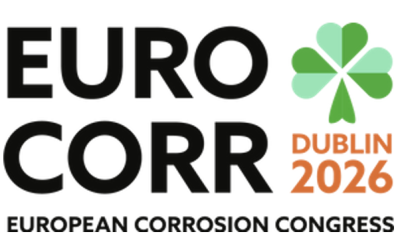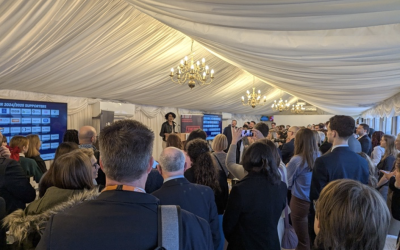The Surface Treatment Governing Board (STGB) is one of three sub-committees that report to ICorr Trustees. The other sub-committees are the Cathodic Protection Governing Board (CPGB) and the Engineering Training Governing Board (ETGB). STGB is specifically responsible for the Surface Treatment Training Courses, which include all the Coating Inspection courses and their content.
The main responsibility of STGB is to oversee the Requirements Documents (REQ-DOCs) for each of the Surface Treatment schemes, and which describe the training schemes for the Coating Inspection courses. There are currently three main REQ-DOCs for Surface Treatment Courses, one for courses that are normally delivered in the classroom and a separate REQ-DOC for the courses that are delivered on-line. The new Passive Fire Protection Coating Inspector Scheme has a separate REQ-DOC, as there are significant differences in this scheme, in that the Level 3 Inspectors are required to satisfy a Peer Review once they have successfully completed the examination stage. Currently, this is unique to the new PFP Coating Inspector scheme, and it also reflects that some of the training can be delivered on-line as well as in the classroom.
These REQ-DOCs contain all the guidance for operating the courses and the associated examinations and certification, and detail the syllabus for the specific courses. For example, the Protective Coating Inspector scheme, previous known as the Painting Inspector scheme, has three levels, Level 1, Level 2, and Level 3. The REQ-DOC describes the eligibility of potential candidates for the different courses and details the topics that are covered by the three levels. The Protective Coating Inspector scheme also includes the specific training required for Insulation Coating Inspectors (Level 2), Pipeline Coating Inspectors (Level 2) and Hot
Dip Galvanising Coating Inspectors (Level 2).
STGB keep the REQ-DOCs under review so that they can be updated and improved on a regular basis. Once a REQ-DOC has been edited and agreed by STGB, it is submitted to ICorr Trustees with a recommendation that the updated version of the REQ-DOC be approved and published.
STGB is also responsible for reviewing any new Surface Treatment courses that are submitted to ICorr through ICorr Trustees, who refer such courses to STGB where a reviewer with the relevant experience is identified. The review is used to make a recommendation to PICorr Trustees with regard to the content and quality of the new course and, where appropriate, its conformance with an existing REC-DOC.
In addition to the REQ-DOCs, STGB review applications from the course providers for candidates who wish to become Course Tutors for the classroom courses, or Course Assessors for the on-line courses, and make recommendations to ICorr Trustees regarding approval or rejection of these applications. These applications mainly come from the overseas agents who market the ICorr courses in their countries or regions. In all cases Tutors and Assessors must hold the relevant ICorr certification to be eligible to be considered for these roles.
STGB is made up of about six ICorr members, who have knowledge and experience of coatings and coating related inspections, and STGB is chaired by a Level 3 Coating Inspector.
STGB is always looking for additional members and if you have an interest in joining STGB please contact Chair stgbchair@icorr.org.
CPGB is a sub-committee reporting to ICorr Trustees and Council. Both CPGB and the Cathodic Protection Scheme Manager (CPSM), report to ICorr Trustees, and work closely with one another to ensure an effective running and management of the Cathodic Protection courses and exams. These include CP levels 1 to 4. All members of CPGB are CP specialists in at least one of the four sectors of CP. The CP Scheme Manager is also a member of the CP Governing Board, which meets on a regular basis.
CPGB ensures as a minimum:
• Scheme is run in accordance with BS EN ISO 15257 – Cathodic protection. Competence levels and certification of cathodic protection personnel, and BS EN ISO/IEC 17024.
• the documents detailing the scheme, course material and exams, are up to date and fit for purpose.
• Document control to ensure latest versions are available for each course.
• Audit the syllabi, the course content, and the course delivery of CP courses.
• Audit both the technical content and process of the examinations.
The CPSM, additionally, coordinates course bookings, training centre availability and candidates, and ensures that the course work and examination material is delivered at the appropriate time and location, examinations are booked, completed, and marked, and the results are fed back to ensure that candidates then apply for their certification on time.
The Scheme Manager also ensures that candidate feedback is regularly received by the CPGB as well as the tutors, as this is key to the success of CP courses.
The current CPGB Chair and CPSM may be contacted at:
CPGB Chair cpgbchair@icorr.org
Cathodic Protection Scheme Manager cpsm@icorr.org
We are also proud to introduce the Engineering Training Governing Board (ETGB) – a bold new initiative by ICorr, focused on shaping the future of professional development in corrosion engineering. This launch is especially timely, following ICorr’s recent award of a Professional Engineering Institution (PEI) licence from the Engineering Council (EngC PEI), reinforcing our commitment to delivering internationally recognised, best-in-class training and certification. ETGB will work alongside our existing Cathodic Protection and Surface Treatment Training Governing Boards (CPGB/STGB) reporting to ICorr Council. ETGB Mission • Develop and deliver new ICorr certified and general awareness courses aligned with evolving industry needs • Provide access routes to ICorr membership via dedicated courses • Strategically manage and expand ICorr’s training portfolio of engineering courses globally • Strengthen branch and global engagement within the international corrosion community • Support ICorr’s Continuing Professional Development (CPD) programme and chartership registration
For all general ETGB enquiries or partnership opportunities, reach out to: ETGB Chair: etgbchair@icorr.org



